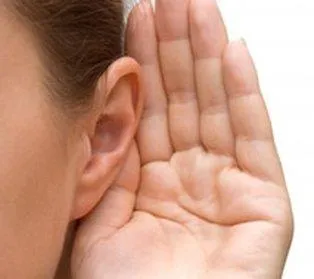Inner Ear Disorders
(Vertigo, Meniere's Disease)
"There are several inner ear disorders that cause dizziness or vertigo, nausea, hearing loss, and tinnitus (ringing in the ears). Although symptoms may differ from patient to patient, there often is a common link with inner ear disorders and injuries or trauma to the upper cervical spine (neck)."
Inner Ear Disorders - Vertigo, Dizziness, Meniere's Disease
Vertigo is the false sensation of movement or dizziness as if the world was spinning. This can range from mild episodes to severe, extended attacks. Vertigo is sometimes accompanied by nausea, vomiting, malaise, hearing loss, tinnitus (ear ringing), and a feeling of ear fullness or pressure. There are several different types of vertigo, including positional, post-traumatic and cervicogenic vertigo (dizziness caused by the neck).
Dizziness, instability and imbalance occur in approximately 50% of all head and/or neck injuries. This includes even mild injuries that don’t require medical attention. According to medical literature, vertigo can also be caused by hyperactivity or irritation to the joints and nerves in the upper neck which assist in the coordination of the eye, head, and body, as well as control posture and spatial orientation.
Meniere’s Disease
Meniere’s disease is a disorder characterized by sudden, recurring attacks of disabling vertigo (a whirling sensation), hearing loss and tinnitus (ringing in the ears), and nausea and vomiting. These symptoms usually last two to three hours, but can sometimes last for days. A sufferer sometimes feels fullness or pressure in the affected ear. Hearing tends to fluctuate but worsens over the years. Tinnitus, which may be constant or intermittent, may be worse before, during, or after an attack of vertigo. Both hearing loss and tinnitus usually affect only one ear. In some cases of Meniere’s disease, hearing loss and tinnitus precede the first attack of vertigo by months or years.
In the book, What Time Tuesday?, Dr. Kevin Broome, an Upper Cervical doctor in Hickory, N.C., describes his battle with Meniere’s disease. As a child, Broome was so sick that he fell on the floor with dizziness, hearing loss, nausea, and projectile vomiting. He writes, “I was told that the only medical solution was to destroy the ‘balance’ nerve in my inner ear. As a result of the surgery, I would never run, play soccer, go swimming, and, worst of all, never go to bed without a light on because the surgery would destroy my body’s computer mechanism.” A shunt was put into Broome’s ear to reduce the amount of fluid that built up. This helped with the hearing loss, but all the other symptoms remained. By this time, I was missing more than 90 days of school a year! “
Broome continues, “I regained my hearing within fifteen minutes of my first Upper Cervical correction. This Upper Cervical chiropractor gave me my life back, so that I could function as others did. He gave me the ability to return to school, be part of a state-championship soccer team, go to college, and, in hindsight, he gave me the ability to help hundreds of thousands of suffering people”.
Inner Ear Disorders & Trauma
Available research shows the relationship between inner ear disorders, (vertigo, tinnitus, Meniere’s disease, etc.) and trauma, trauma that can range from a mild bump on the head to a fall, a concussion, or even whiplash from a motor vehicle accident or sports injury. Inner ear disorders can appear immediately after trauma or take months or years to develop.

